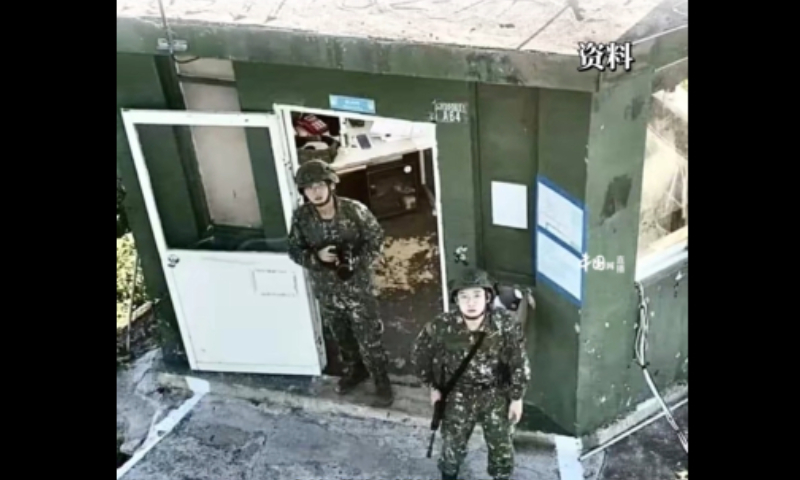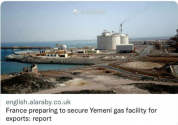You are using an out of date browser. It may not display this or other websites correctly.
You should upgrade or use an alternative browser.
You should upgrade or use an alternative browser.
Miscellaneous News
- Thread starter bd popeye
- Start date
In the old days, (heck, who I am kidding, it still happens today), in the olds days, the Americans would stage a coup to replace leaders like this, you know, the regime change thingy.
Famous story about Lydon Johnson telling off the Greek ambassador. Things never change.
Seems like that this time, any coup would have to go through Chinese security services first.
That story that China will supply security training or police to Soloman Island, was a very strange story. Normally, something like that never happens. Why were they doing this?
Maybe they want anti-coup training.
Suppose someone hired Eric Prince's company Blackwater to provide training and police services. Obviously that is to prevent coups.
Seems like China and the Soloman Islands have the same sort of understanding.
Did not expect them to start talking so much smack.
Must be liberating.
I have a few problems with this
1- Most formal practices that underpin the international system are disintegrating. The UN charter has been largely impotent against great powers but at no point the US was actively trying to undermine the UN and other institutions. And at no point so many countries were violating it so frequently. Taiwan's current status was a victory for China. Taiwan was almost completely isolated politically for decades. But it is changing. What's the importance of formal recognition and UN membership if you are treated as a real state by your supporters? Nothing. One China is rapidly deteriorating to a point that it is just lip service. It is becoming something Americans use to "play China" as it was in liberal fantasies. For example, the new Taipei act is basically a recognition of Taiwan. It just leaves the formal declaration part. It is the political analog of the special military operation of Russia. There is no declaration but no person would argue that Russia is not at war with Ukraine.
True, but China can block or impose penalties for every action.
2- What about 4% spending in Taiwan? That is usually what countries that feel threatened spend. What about Taiwan actually starting to treat its military as a military rather than a jobs program? What about long conscription and focus on urban warfare? A country with the economic size of Taiwan can easily make itself a porcupine. Taiwan's economic size doubles Israel.
And why shouldn't China double military spending to 3.4%? After all, the US and Russia are routinely above this level.
A porcupine strategy and a long war means Taiwan has accepted a blockade and at a minimum, will still see the utter collapse of the civilian economy (food, fuel, water, electricity, etc). There's no way to even transport food without fuel supplies.
3- Taiwan can fight for months. Especially if they prepare themselves for it. Food, fuel, and infantry equipment are not expensive at all and can be stored in huge volumes with some effort. Today, you are right. But a Ukrainized Taiwan can easily fight for a year. Just the battle of Taipei can last months.
Yes, supplies for 23 million people in Taiwan can be stockpiled. But without electricity or fuel, how can you store, transport and then distribute these supplies?
4- On a totalistic basis China will continue catching up to the USA quite fast. That's a certainty. But in terms of what can be projected to the West Pacific the situation will improve significantly slower. The current US military is actually not well suited for the challenge. It has a lot of worn out equipment and its unit structures and equipment stocks are largely tailored for middle eastern adventures. By 2035 we will have a much more focused US military and a significantly higher proportion of it will be in West Pacific. Coupled with Japanese and Taiwanese military growth, this is very significant. To sum up, China benefits from waiting but the picture in 2035 won't be much better than it is today. Most pro-China people look at how the current picture and extrapolate that China would curb stomp the USA in West Pacific in a conflict in 2035. But that won't be the case. That's only possible if the USA invades Iran and has another Vietnam there.
What can the US actually project to the Western Pacific? On a practical basis, the US needs local bases within the 2nd Island Chain. Otherwise sortie rates and presence drop off dramatically.
Yes, the US is improving its long range offensive capabilities (missiles, B-21 bombers, NGAD, ships, etc) but this is really expensive and still relies on the same few bases.
In comparison, China will vastly improve its long range strike capabilities by 2035.
There's a good chance that the Chinese H-20 stealth bomber will fly before the B-21. So we'll see the H-20 in service by 2030 and in significant numbers by 2035. That gives China a new capability to mount continuous airstrikes past the 2nd Island Chain.
We will also see the introduction of a bare minimum of 100 Y-20U large tanker aircraft which will be able to support fighters and bombers operating at longer ranges. Again this is a new capability which didn't exist before.
The J-20 fleet will also be at least 4x larger than today, with a bare minimum of 600 aircraft, and these will be supported by tankers.
I also expect a large increase in low-cost DF-17 MRBMs (Japan mainly), DF-26 IRBMs (Guam mainly) and DF-27 ICBMs (for the 3rd Island Chain).
Then you've got new carriers, destroyers, frigates, submarines. My guesstimate is an overall fleet 2-3x larger than today.
So China's ability to knockout bases in the 1st and 2nd Island bases will now be comprehensive, along with a new ability to reach out to the 3rd Island Chain. Japan for example will now be in a similar position to Taiwan today, where the Chinese would be able to mount an extended blockade and prevent US resupply to Japan.
EDIT. Japan would need about 400 MRBM missiles for a first strike, then another 400 for the reload. Then it could be followed up by H-20 bombers. Just 20 could launch 40,000 SDB glide bombs in a single night all over Japan.
The conclusion is that Japan's economic and military security can only be secured with China, and that an alliance with the USA would be worthless
Last edited:
US Coast Guard patrolling for illegal fishing in West Pacific.
This Solomon Islands PM is based beyond belief.
Last edited:
China doesn't seek an active violent resolution, but American activity around Taiwan is more and more resembling Russian activity around Donbass early 2022.Sacrifices required for AR right now is already not worth it despite PLA having "massive advantage". Mainland is more important than Taiwan. 2030 may or may not be better. Entire region is arming up.
Technology has advanced to a point that one can strike anybody, anywhere, at anytime. If you are out in the open you are dead. "War of the future will be dirty, urban, and underground." Taiwan would be smart to hid a significant portion of its assets underground. Grind it out. Neutralize PLA's "overwhelming fire power". They are already training for that. The war is lost if China has to fight a protracted war.
Never assume your enemy will just surrender (unless you are Russia).
Rebel forces hiding underground is not nearly as smart as you think. If they're largely underground, they're not protecting the coasts and once a group army has landed, unless USA successfully pulls off a landing as well, it is game over.
Beijing unlike Kiev isn't gonna spend years ineffectively shelling the separatists and building up useless national battalion infanteries. Expect a total communication/necessities cutoff and 100 000+ munitions fired each day, guided by 10cm accuracy satellite intel, 3 times more accurate than NATO GPS.
ROC soldiers are forced to defend the coasts, which means they must maintain relatively static formations. Except under such bombardment, static formations will be annihilated. Beijing can since the start of day 1-2 continously feint landings, forcing a disoriented and command disrupted ROC to move columns around to defend and create many highways of death.
Once Beijing lands in earnest, the war is over. Almost every scenario even the ones considered by the US regime accepts this as fact.
KungFu machine, son
Jai Tsai, what a supapowa
Someone apparently used a civilian drone to film ROC soldiers on Kinmen Island and posted it on Weibo lmao.

Incredible, the westerners have destroyed any post ww2 peace settlement and have chosen to return to outright Hobbesian piracy and colonialism.France Robber
View attachment 96193


